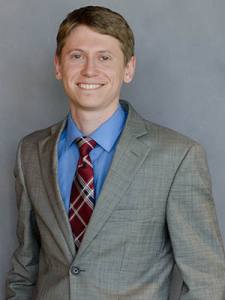In Plano, all the aspiring Republican lawmakers—and even a few Democrats—support efforts to require cities and counties to seek approval from voters before raising taxes beyond a defined percentage. Similar proposals failed to earn the support of both houses of the Texas Legislature last year.
Texas House Speaker Joe Straus, R-San Antonio, announced in October that he would not seek re-election to the Legislature, casting a shadow of uncertainty on how the state House and Senate, which do not always see eye to eye on policy, will collaborate on property taxes in the 2019 legislative session.
In January, Republican Gov. Greg Abbott doubled down on property taxes as a priority when he unveiled a plan to require a two-thirds voter majority in order for cities and counties to raise property taxes by more than 2.5 percent per year.
“I think the prospects for real property tax relief look really good for next session,” said Rep. Jeff Leach, R-Plano, who supported property tax proposals in the 2017 sessions. “I’m hopeful that we can deliver. If we don’t, we’re going to have to answer to the taxpayers, who are expecting us to deliver that for them.”
However, some advocates of the policy change see a steep political climb ahead.
Complicating the property-tax equation is the increased number of Democratic candidates running this year for seats in the state’s traditionally Republican legislative body. With at least one Democratic candidate running for each Plano-area state House and Senate district, each race is expected to be contested in the general election later this year.
“I’m hoping that the makeup of the [legislative] bodies is different,” said Sharon Hirsch, who is running unopposed in the Democratic primary for House District 66. “It’s going to be hard to predict what the [property tax] conversation will look like, because we have so many more competitive races this time than we have in the past.”
Proposals and their prospects
Under existing law, residents are given an opportunity to vote to deny a request from their school districts that plan to raise property tax revenue beyond a certain rate defined by the state. For cities and counties, residents can petition for a rollback election when their local officials propose annual property tax increases of more than 8 percent.
Bills that failed to clear the Legislature in 2017 proposed lowering rollback rates of 4 percent or 6 percent for cities and counties. If, under the bills, a local government proposed a tax increase beyond one of those rates, they would have triggered an automatic rollback election, which would eliminate the need for a petition process first.
Some opponents of the measure have become increasingly nervous in recent years as proposals to restrict property tax increases picked up steam in the Legislature and narrowly failed to pass in a 2017 special session, said Bennett Sandlin, executive director of the Texas Municipal League. Sandlin’s organization represents cities and counties across the state and has condemned efforts to overhaul the property tax system.
“It’s getting worse,” Sandlin said. “The proposal got further than ever in 2017. It essentially passed the House at 6 percent, and that wasn’t good enough for the Senate.”
But for proponents of the efforts to limit property tax growth, the failure of the state House and Senate to agree on a bill last year was a major disappointment, said Daniel Gonzalez, director of legislative affairs for the Texas Association of Realtors.
“I don’t know if that’s true or not, to be honest with you,” Gonzalez said, when asked whether the efforts had gained momentum in recent years. “In fact, I would even almost say we lost momentum because we had the football at the 1-yard line, and all we had to do was push it across the goal line—and we couldn’t do that.”
The changing state political scenery, he said, makes reform advocates somewhat hopeful for change—although the conversations could still be messy.
“You will have new leadership in the House,” Gonzalez said, adding that he expects the governor and Republican Lt. Gov. Dan Patrick to remain in office. “Will they be able to come together on something? I don’t know, but I think it will be just as contentious as it was during the regular and special sessions in 2017.”
School finance question
Lawmaker proposals to limit property tax growth during the last special session would have primarily affected cities and counties but left the bulk of Plano-area tax bills unaffected.
For a resident living in Plano ISD boundaries, nearly two-thirds of a tax bill goes to the school district. The remaining third is divvied out among the city of Plano, Collin County and the Collin College system.
“Until we have meaningful school finance reform, it’s going to be hard to get those local property taxes in check,” said Hirsch, the Democrat.
However, a growing chunk of PISD property taxes are not going to fund local schools and administration but are being returned to the state’s top education agency in the form of recapture payments.
This school year, PISD officials forwarded to the state more than 1 in 4 of its property tax dollars designated for maintenance and operations—a total of $155 million. And as these recapture payments have increased, the share of funding for public education coming from state revenue sources has declined, according to a 2016-17 biennium report from the Texas Legislative Budget Board.
The Legislature formed a commission to examine the public education financing system and offer recommendations for updates. That commission’s work began in earnest last month, and Leach said he is hopeful that it can produce actionable proposals for change.
“We’re trusting that the school finance commission will deliver a report to the Legislature as we head into next session that will give us some guidance on how we can reform school finance to provide property tax relief and yet give our educators the resources they need to educate our kids,” Leach said.







